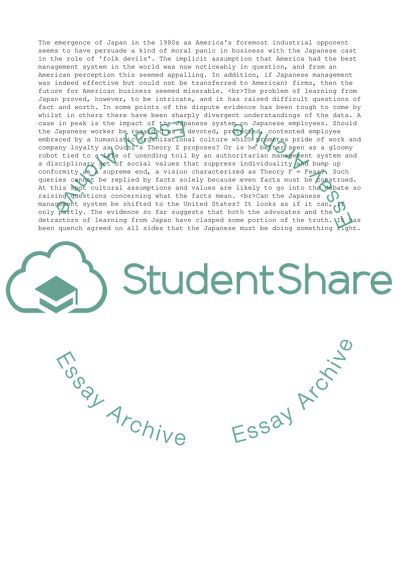Retrieved from https://studentshare.org/management/1536070-differences-in-management-styles-between-the-american-and-the-japanese-in-multinationals
https://studentshare.org/management/1536070-differences-in-management-styles-between-the-american-and-the-japanese-in-multinationals.


